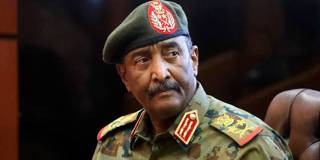
Can Sudan's Democratic Opening Be Reopened?
The widespread popular opposition to last month’s coup in Sudan demonstrates the public’s rejection of military dictatorship. But more generous international financial and political support is vital if the country’s transition to democracy is to resume and have a chance of succeeding.
CAIRO – The 2019 power-sharing agreement between Sudan’s civilian and military leaders, which envisaged a transition to a democratic order following the overthrow of Omar al-Bashir’s dictatorship, was never going to be easy to implement. But following last month’s military coup, the question now is whether democracy is still even on the agenda at all.